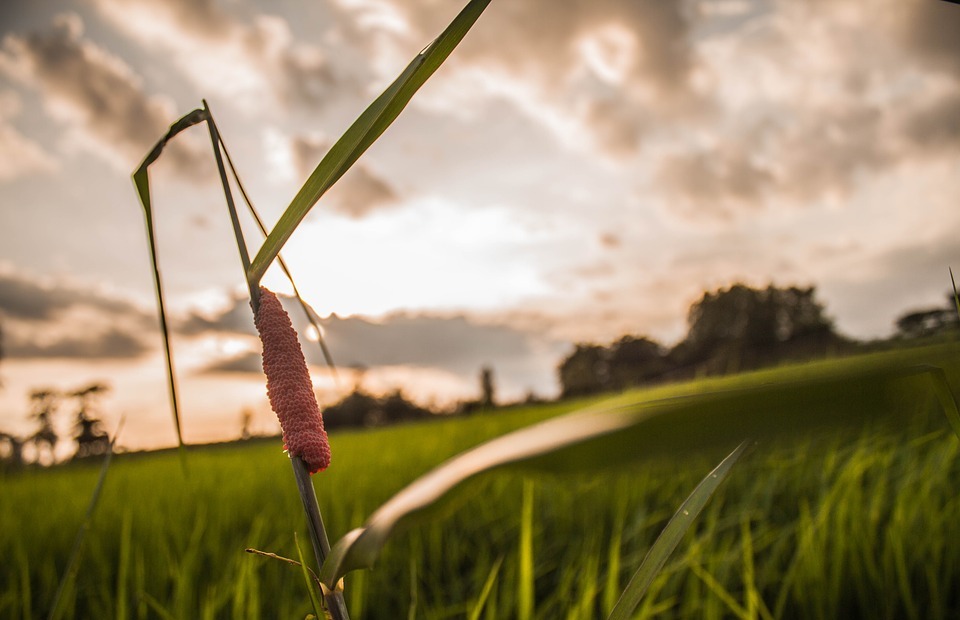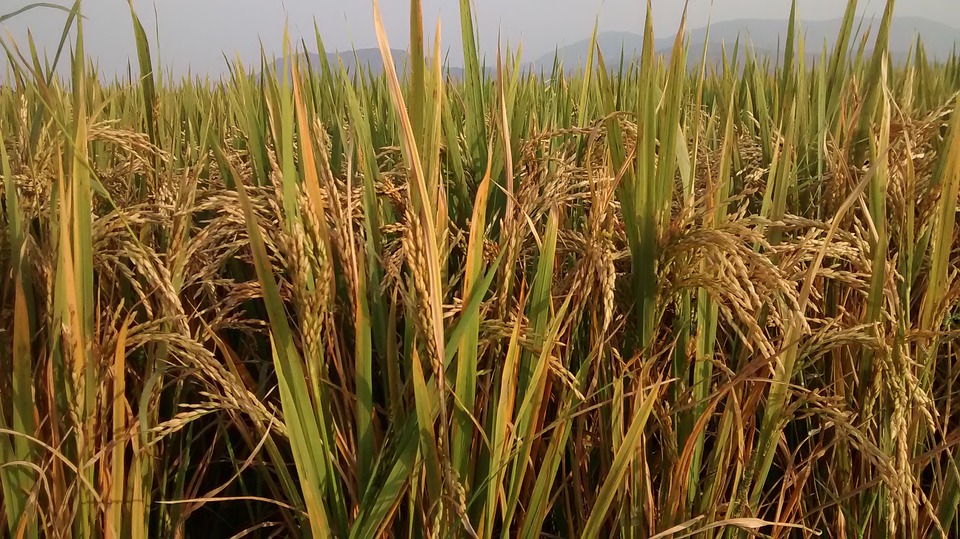The question of whether cats can eat rice is a common one among cat owners. While rice might seem like a harmless addition to a cat's diet, it's important to understand the potential benefits and risks involved. This article will delve into the complexities of feeding rice to cats, exploring various aspects from nutritional value to potential health implications.
Part 1: The Nutritional Landscape of Rice

1.1. Types of Rice and their Properties
Rice is a staple grain globally, but its different varieties possess distinct nutritional profiles.
- White Rice: The most refined type, white rice has undergone a milling process that removes the bran and germ, resulting in a lower content of essential nutrients like fibre, vitamins, and minerals. However, it is typically more digestible for cats due to its simpler composition.
- Brown Rice: A whole grain option, brown rice retains the bran and germ, making it a richer source of fibre, vitamins B and E, magnesium, and manganese. While nutritious, brown rice might be harder for some cats to digest due to its higher fibre content.
- Wild Rice: Technically not a rice but a type of aquatic grass, wild rice boasts a unique nutty flavour and is exceptionally rich in protein, fibre, and antioxidants. It's a nutritious choice but can be challenging for cats to digest due to its tough outer layer.
- Black Rice: Known for its striking dark colour and chewy texture, black rice is a potent source of antioxidants and minerals like iron, manganese, and phosphorus. However, its intense flavour and chewy texture might not be appealing to all cats.
1.2. Nutritional Breakdown of Rice
Rice offers a combination of macronutrients and micronutrients.
- Carbohydrates: Rice is primarily composed of carbohydrates, primarily starch, which provide energy.
- Protein: While rice does contain protein, it's not a substantial source compared to animal-based proteins essential for cats.
- Fibre: Brown and wild rice offer higher amounts of fibre, which can benefit digestion. However, too much fibre can lead to constipation in some cats.
- Vitamins: Rice contains small amounts of thiamin, niacin, and vitamin E. However, these are not sufficient to meet a cat's nutritional needs.
- Minerals: Rice provides manganese, magnesium, and selenium in small quantities.
Part 2: Can Cats Digest Rice?

2.1. Digestive Considerations
Cats possess different digestive systems than humans, and their ability to digest specific foods varies.
- White Rice: Generally considered the most digestible type for cats due to its refined nature.
- Brown and Wild Rice: These types can be more challenging for cats to digest due to their higher fibre content. They may lead to constipation or diarrhoea, depending on the individual cat.
- Individual Variation: Some cats may have greater sensitivity to certain types of rice, while others may tolerate them well. Observing your cat's response is crucial.
2.2. Factors Influencing Digestibility
The following factors can affect how well a cat digests rice:
- Cooking Method: Thorough cooking is essential to make rice more digestible for cats. Overcooked rice can be more easily broken down.
- Age: Kittens and senior cats may have more sensitive digestive systems and might require more caution when introducing rice.
- Health Conditions: Cats with pre-existing digestive issues may need specific dietary adjustments, making rice unsuitable in some cases.
Part 3: Is Rice Beneficial for Cats?
3.1. Potential Benefits of Rice for Cats
While not a primary nutritional source, rice can offer certain benefits for cats, especially in specific situations.
- Digestive Support: Plain, cooked rice can help to soothe an upset stomach or provide a bland diet for gastrointestinal issues like diarrhoea or vomiting.
- Weight Management: White rice, being relatively low in calories and fat, can be a part of a controlled diet for overweight cats.
- Energy Source: The carbohydrates in rice provide a readily available energy source, although not as nutritious as carbohydrates derived from animal sources.
- Increased Fibre (Brown & Wild Rice): Brown and wild rice can add fibre to a cat's diet, promoting healthy digestion. However, moderation is key to avoid constipation.
3.2. Limitations of Rice as a Cat Food
While rice can offer some benefits, it's not a complete food source for cats.
- Protein Deficiency: Cats are obligate carnivores, meaning they require animal-based protein for optimal health. Rice lacks sufficient protein for their needs.
- Essential Fatty Acid Deficiency: Cats need essential fatty acids, primarily found in animal fats, for healthy skin, coat, and overall health. Rice lacks these crucial fatty acids.
- Vitamin and Mineral Deficiencies: Rice does not provide all the essential vitamins and minerals required by cats.
Part 4: Potential Risks of Feeding Rice to Cats
4.1. Digestive Issues and Sensitivities
While rice can be beneficial for digestive upset, it can also cause problems for some cats.
- Constipation: High-fibre rice varieties like brown and wild rice can contribute to constipation in cats, especially if they are not accustomed to high-fibre diets.
- Diarrhoea: Some cats may have difficulty digesting rice, leading to diarrhoea. This is more common with brown and wild rice due to their higher fibre content.
- Allergic Reactions: While uncommon, cats can be allergic to rice. Symptoms may include skin problems, digestive issues, or respiratory distress.
4.2. Nutritional Deficiencies
Feeding rice exclusively or in large quantities can lead to nutritional deficiencies in cats.
- Protein Deficiency: A prolonged rice-based diet can lead to protein deficiency, impacting muscle mass, organ function, and overall health.
- Essential Fatty Acid Deficiency: A lack of essential fatty acids can cause dry skin, dull coat, and other health problems.
- Vitamin and Mineral Deficiencies: Rice alone cannot provide the full spectrum of vitamins and minerals cats require for optimal health.
Part 5: Rice in the Context of Feline Health Issues
5.1. Gastrointestinal Issues
Rice can play a role in managing some gastrointestinal issues in cats.
- Diarrhoea: Plain, cooked rice can help to bind stool and reduce diarrhoea due to its bland nature and ability to absorb excess fluids.
- Vomiting: A bland diet of cooked rice can help to settle an upset stomach and reduce vomiting episodes.
- Pancreatitis: In cases of pancreatitis, a low-fat diet, often including rice, may be recommended to reduce stress on the pancreas.
5.2. Weight Management
Rice can be a component of a weight-loss diet for overweight cats, particularly white rice, due to its low calorie and fat content. However, it's crucial to ensure a balanced diet with sufficient protein and other essential nutrients.
Part 6: How to Incorporate Rice into Your Cat's Diet Safely
6.1. Choosing the Right Type of Rice
- White Rice: Most digestible and suitable for occasional treats or digestive issues.
- Brown Rice: Offer in moderation as a treat, but monitor for digestive tolerance.
- Wild Rice: Only for occasional treats due to its lower digestibility and potential for digestive issues.
- Black Rice: While nutritious, black rice is generally not recommended for cats due to its strong flavour and chewy texture.
6.2. Cooking and Serving Rice for Cats
- Cook Thoroughly: Rice must be cooked until fully soft and digestible for cats. Overcooked rice is easier to digest.
- No Additives: Avoid salt, seasonings, oils, or any other ingredients that can be harmful to cats.
- Moderation: Rice should be a small portion of their diet, not a primary food source.
- Introduce Gradually: Start with a small amount and monitor for any adverse reactions.
Part 7: Rice as a Treat for Cats
Rice can be an occasional treat, but should not replace their regular cat food.
- Mix with Cat Food: You can add a small amount of cooked rice to their cat food for added flavour and texture.
- Homemade Cat Treats: Rice can be used in some homemade cat treat recipes, but be sure to consult a veterinarian or a qualified pet nutritionist to ensure the recipe is balanced and appropriate for cats.
Part 8: When to Consult a Veterinarian
Consult your veterinarian if you have any concerns about feeding rice to your cat, especially if they experience:
- Diarrhoea or vomiting
- Loss of appetite or weight loss
- Skin problems or allergic reactions
- Any other health issues
Part 9: FAQs
9.1. Can cats eat rice every day?
No, rice should not be a staple food for cats. It lacks crucial nutrients and can lead to deficiencies over time.
9.2. Can cats eat rice with gravy?
No, gravy is typically loaded with seasonings, fats, and other ingredients that are harmful to cats.
9.3. Can cats eat rice with chicken?
Cooked chicken and plain, cooked rice can be a safe and palatable treat for cats in moderation.
9.4. Can cats eat rice with milk?
While some cats enjoy rice with milk, it's not recommended. Milk can cause digestive issues and lactose intolerance in some cats.
9.5. Is rice good for cats with diarrhoea?
Plain, cooked rice can help to bind stool and alleviate diarrhoea in some cats due to its bland nature and ability to absorb excess fluids.
9.6. What kind of rice is best for cats?
White rice is generally considered the most digestible for cats, while brown and wild rice offer more fibre but may be harder to digest.
9.7. Can cats eat leftover rice?
Leftover rice is generally safe for cats, but it's crucial to ensure it's plain, cooked rice without any additives or seasonings.
9.8. Can rice cause pancreatitis in cats?
While rice itself is not a known cause of pancreatitis, a high-fat diet containing rice can potentially contribute to the development of pancreatitis in cats with a predisposition to this condition.
9.9. Is rice a good source of protein for cats?
No, rice is not a good source of protein for cats. Cats are obligate carnivores and require animal-based protein for optimal health.
9.10. Can cats eat sushi rice?
Sushi rice is typically seasoned with vinegar and sugar, which are harmful to cats.
9.11. Can cats eat rice with vegetables?
Some vegetables, like cooked carrots and green beans, can be safe additions to a cat's diet. However, it's important to choose vegetables that are safe for cats and avoid those that are toxic.
It's crucial to remember that feeding rice to cats should be done with caution and in moderation. Always prioritize a balanced diet tailored to your cat's specific needs and consult with a veterinarian for personalized dietary advice.
Everyone is watching

Are Cat Ribs Flexible? Understanding Their Anatomy
CATS & KITTENSThis article delves into the fascinating world of feline anatomy, exploring the flexibility of cat ribs and ho...

Can Cats Eat Bananas? (Everything You Need to Know)
CATS & KITTENSThis article dives into the intriguing question of whether cats can safely enjoy the sweet, yellow fruit, bana...

Cat Lifespan: How Long Do Cats Live?
CATS & KITTENSThis comprehensive guide explores the factors influencing the lifespan of our feline companions, providing ins...

Can Cats Get COVID-19? What You Need to Know
CATS & KITTENSThis article will delve into the fascinating world of feline COVID-19 susceptibility. We'll explore whether ca...

Can Cats Eat Eggs? A Complete Guide to Egg Safety for Your Feline Friend
CATS & KITTENSWhen it comes to treating our furry companions, we all want to ensure we're doing what's best for them. Eggs...
